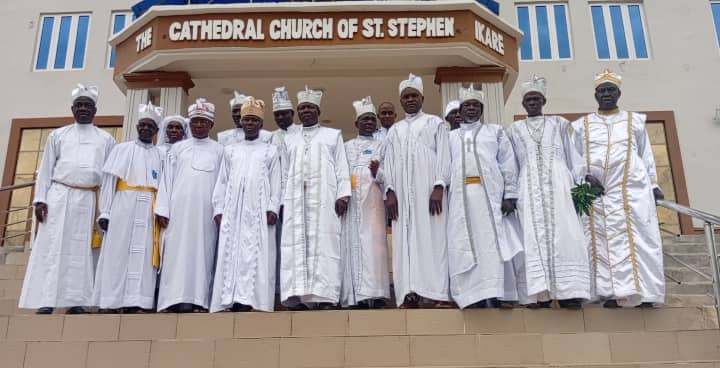Paragraph 1: A Century of Faith and the Challenge of Doctrinal Deviation
The Eternal Sacred Order of the Cherubim and Seraphim, a prominent spiritual institution with a rich history spanning a century, has voiced its concern over the adoption of unorthodox practices by some of its members. This appeal for doctrinal purity comes as the church embarks on a year-long centennial celebration, marking a significant milestone in its journey of faith. The church leadership, while acknowledging the growth and evolution of the church over the years, emphasizes the critical need to adhere to the original teachings of its founder, St. Moses Orimolade Tunolase. The deviation from the foundational doctrines, they argue, poses a significant challenge to the integrity and authenticity of the church’s spiritual mission.
Paragraph 2: Recalling the Founder’s Legacy and the Call for Unity
The church’s call for doctrinal alignment is rooted in the belief that the teachings of St. Moses Orimolade provide the most effective safeguard against spiritual manipulation and fraudulent practices. Professor Aderotimi Oyetakin, the church’s Secretary, speaking at the founder’s family house in Ikare-Akoko, Ondo State, underscored the importance of returning to the original doctrines and practices established by the founder. He emphasized the need for unity within the global Cherubim and Seraphim community, urging all branches to embrace the historical truth of St. Moses Orimolade’s sole founder status and resist attempts to rewrite the church’s history.
Paragraph 3: Identifying and Rejecting Unorthodox Practices
The church leadership explicitly identifies specific practices that deviate from the founder’s original teachings. These include the use of colored candles (red, black, or other colors), the incorporation of the Ark of the Covenant (Apoti Eri), and blood-letting rituals. These practices, according to the church, not only contradict the founder’s established doctrines but also negatively impact the image of the church. The leadership calls upon those engaging in such practices to cease immediately, emphasizing the importance of preserving the church’s spiritual integrity and upholding its reputation.
Paragraph 4: Combating Fraud and Exploitation within the Faith
Recognizing the vulnerability of religious communities to exploitation, the church has pledged to collaborate with security agencies to identify and prosecute individuals who misuse the church’s name and attire for fraudulent or ritualistic purposes. This commitment underscores the church’s dedication to protecting its members and the wider community from those who would exploit faith for personal gain. The church’s proactive stance aims to maintain public trust and ensure that the spiritual mission of the church is not tarnished by the actions of a few.
Paragraph 5: Celebrating a Century of Spiritual Impact and Planning for the Future
The church’s centenary celebration is not merely a reflection on the past but also a platform for charting the course for the future. The church has planned a series of events to commemorate its 100 years of existence, including a world congress, revivals, crusades, symposiums, musical concerts, and various corporate social responsibility initiatives. These activities reflect the church’s commitment to spiritual growth, community engagement, and positive societal impact.
Paragraph 6: Honoring the Founder’s Legacy and Embracing Community Partnership
The Owa-Ale of Ikare-Akoko, Oba Adeleke Adegbite, acknowledging the significant role of St. Moses Orimolade and the Cherubim and Seraphim church in the Nigerian religious landscape, urged the church leadership and members to ensure that the founder’s family and the local community benefit from the centenary celebrations. This call for inclusivity underscores the importance of community partnership and the recognition of the church’s role within a broader social context. The monarch’s emphasis on unity and the fulfillment of Orimolade’s original vision echoes the church leadership’s call for a return to foundational principles and a shared commitment to the church’s spiritual mission.


